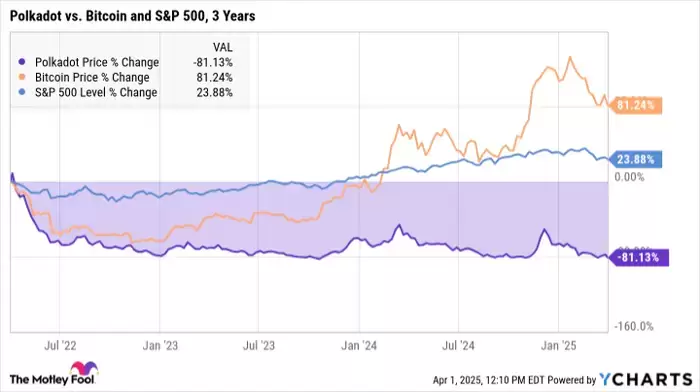 |
|
 |
|
 |
|
 |
|
 |
|
 |
|
 |
|
 |
|
 |
|
 |
|
 |
|
 |
|
 |
|
 |
|
 |
|
2008年の危機の影で生まれたビットコインは、今日、銀行の基礎を揺さぶる革命を体現しています。

In the hushed corridors of finance, a brutal metamorphosis is unfolding. Bitcoin, forged in the shadow of the 2008 crisis, today embodies a revolution that threatens to topple the giants of banking.
金融の静かな廊下では、残忍な変態が展開されています。 2008年の危機の影に造られたビットコインは、今日、銀行の巨人を倒す恐れのある革命を体現しています。
From promises of financial emancipation to technical challenges, its ascent raises a crucial question: can it truly dethrone the behemoths of traditional finance?
財政的解放の約束から技術的課題まで、その上昇は重要な問題を提起します。
Let’s dispense with the usual clichés and take a candid look at the clash between these two paradigms.
通常の決まり文句を分配し、これら2つのパラダイムの衝突を率直に見てみましょう。
Bitcoin vs banks: a war of architectures
ビットコインと銀行:建築戦争
Bitcoin is based on a peer-to-peer network, without a conductor. It’s a decentralized ledger, secured by miners who aggregate transactions in blocks, forming a chain of trust.
ビットコインは、指揮者のないピアツーピアネットワークに基づいています。それは分散型の元帳であり、ブロック内のトランザクションを集約し、信頼の連鎖を形成する鉱夫によって保護されています。
Banks, on the other hand, function like centralized cathedrals, where each stone depends on a higher authority. They are institutions supervised by the State, collecting deposits to grant loans.
一方、銀行は集中大聖堂のように機能し、各石はより高い権限に依存します。彼らは州によって監督された機関であり、ローンを付与するために預金を集めます。
This structural divergence explains why Bitcoin appeals to those disillusioned by institutions. It replaces trust in fallible men with irrefutable mathematics.
この構造的相違は、ビットコインが機関によって幻滅した人々にアピールする理由を説明しています。それは、誤った男性に対する信頼を反論できない数学に置き換えます。
In 2021, El Salvador adopted Bitcoin as legal tender, despite warnings from the IMF and World Bank. The result? An economy less dependent on the dollar, but exposed to the cryptocurrency’s volatility.
2021年、エルサルバドルは、IMFと世界銀行からの警告にもかかわらず、ビットコインを法定通貨として採用しました。結果?経済はドルに依存していませんが、暗号通貨のボラティリティにさらされています。
Meanwhile, traditional banks, protected by State safety nets, have withstood the storms and emerged stronger. Bitcoin offers risky freedom; banks, corseted stability.
一方、州の安全網によって保護されている伝統的な銀行は、嵐に耐え、より強くなりました。ビットコインは危険な自由を提供します。銀行、コルセットの安定性。
Bitcoin handles 7 transactions per second, compared to thousands for Visa or tens of thousands for Starlink. Solutions like Lightning Network are trying to bridge this gap, but the road remains long.
ビットコインは、ビザの数千またはスターリンクの数万と比較して、1秒あたり7つのトランザクションを処理します。 Lightning Networkのようなソリューションはこのギャップを埋めようとしていますが、道路は長いままです。
Banks, despite their touted heaviness, have already mastered the art of massive flows. An advantage that could erode if blockchain technology matures and new use cases emerge.
銀行は、宣伝された重さにもかかわらず、すでに大規模な流れの芸術を習得しています。ブロックチェーンテクノロジーが成熟し、新しいユースケースが出現した場合に侵食される可能性のある利点。
Bitcoin promises a bank account on a smartphone. Yet, 3 billion people still lack internet access, and in sub-Saharan Africa, only 48% of adults own a mobile phone. Without this digital infrastructure, the dream of inclusion remains a mirage.
ビットコインは、スマートフォンで銀行口座を約束します。しかし、30億人が依然としてインターネットアクセスを欠いており、サハラ以南のアフリカでは、携帯電話を所有している成人の48%だけがいます。このデジタルインフラストラクチャがなければ、インクルージョンの夢はMirageのままです。
Cross-border transfers via Bitcoin cost a few cents, compared to an average of 6% for traditional services. But this saving masks a problem: the volatility of BTC can eliminate gains in just a few hours. Stablecoins like USDC attempt to address this, but their peg to traditional currencies perpetuates dependency on the current system.
Bitcoinを介した国境を越えた転送は、従来のサービスの平均6%と比較して数セントかかりました。しかし、この節約は問題を抱えています。BTCのボラティリティは、わずか数時間で利益を排除できます。 StablecoinsのようなStablecoinsはこれに対処しようとしますが、従来の通貨に対するペグは現在のシステムへの依存を永続させます。
Security: blockchain vs human psychology
セキュリティ:ブロックチェーンと人間の心理学
The Bitcoin blockchain has never been hacked. Its code, open-source and scrutinized by thousands of developers, is a marvel of resilience. But digital wallets, used to store private keys, on the other hand, are vulnerable.
ビットコインブロックチェーンはハッキングされたことはありません。数千人の開発者によってオープンソースと精査されたそのコードは、回復力の驚異です。しかし、一方、プライベートキーを保管するために使用されるデジタルウォレットは脆弱です。
In the first quarter of 2025, losses related to cryptocurrency platform hacks reached $1.63 billion. A staggering sum that showcases the urgency of cybersecurity in this rapidly evolving industry.
2025年の第1四半期に、暗号通貨プラットフォームのハックに関連する損失は16億3,000万ドルに達しました。この急速に進化する産業におけるサイバーセキュリティの緊急性を示す驚異的な金額。
Banks, like Zoom in 2020, spend billions on cybersecurity, yet they still experience regular data breaches and fraud. In 2022, 74% of financial institutions reported an increase in cyberattacks.
銀行は、2020年のズームのような、サイバーセキュリティに数十億を費やしていますが、それでも定期的なデータ侵害と詐欺を経験しています。 2022年、金融機関の74%がサイバー攻撃の増加を報告しました。
Bitcoin eliminates intermediaries, but not human errors. It shifts the burden of vigilance onto the individual.
ビットコインは仲介者を排除しますが、人的誤りは排除しません。警戒の負担を個人に移します。
An advantage of banks is that they offer, at least psychologically, a greater sense of recovery. 20% of bitcoins are locked in inaccessible wallets. A simple USB key misplaced or lost, and fortunes evaporate.
銀行の利点は、少なくとも心理的には、より大きな回復感を提供することです。ビットコインの20%がアクセスできない財布にロックされています。単純なUSBキーが見当違いまたは失われたものであり、運命は蒸発します。
Banks, with their administrative procedures and backup systems, forge a more durable fabric of security, even if it’s an illusion. They offer a psychological resilience that Bitcoin cannot yet provide.
銀行は、管理手続きとバックアップシステムを備えており、たとえそれが幻想であっても、より耐久性のあるセキュリティの構造を偽造しています。彼らは、ビットコインがまだ提供できない心理的回復力を提供します。
Economic stability: the deflationary trap
経済的安定性:デフレトラップ
Bitcoin is limited to 21 million units. A scarcity that attracts investors but poses a problem: how to manage an economy without any possibility of monetary adjustment?
ビットコインは2100万台に制限されています。投資家を引き付けるが問題を提起する希少性:金銭的調整の可能性なしに経済を管理する方法は?
Central banks use inflation or deflation as a lever to steer an economy out of crisis. Bitcoin, on the other hand, imposes a rigidity that may be an advantage in good times, but an unmanageable constraint in bad times.
中央銀行は、インフレまたはデフレをレバーとして使用して、経済を危機から脱出させます。一方、ビットコインは、良い時代には利点となるかもしれない剛性を課しますが、悪い時代には管理できない制約を課します。
In 2024, 60% of BTC holders consider it as “digital gold,” a hedge against inflation. Few use it to buy a coffee or pay their rent daily.
2024年、BTC保有者の60%は、インフレに対するヘッジである「デジタルゴールド」と見なしています。コーヒーを購入したり、毎日家賃を払ったりするために使用する人はほとんどいません。
As long as it remains a speculative asset, its role as a currency for everyday exchanges will remain marginal. But banks, despite their flaws, retain the monopoly on these small, daily transactions.
投機的資産のままである限り、日常の交換の通貨としての役割はわずかなままです。しかし、銀行は、その欠陥にもかかわらず、これらの小さな毎日の取引の独占を維持しています。
BlackRock and JPMorgan are integrating Bitcoin into their funds, but as an investment product, not as a currency for small, daily transactions. A hybrid adoption that reinforces the current system more than it dismantles it.
BlackRockとJPMorganは、ビットコインを資金に統合していますが、投資商品として、小規模な毎日の取引の通貨としてではありません。現在のシステムを解体する以上に強化するハイブリッドの採用。
The EU adopted MiCA in 2023 to regulate cryptos, and the United States oscillates between the stifling hand of the SEC and the rapid innovation of Web3 startups.
EUは2023年にCryptosを規制するために2023年にMICAを採用し、米国はSECの息苦しい手とWeb3スタートアップの迅速な革新の間で振動します。
Without a clear framework for integration, Bitcoin will never supplant banks. But excessive regulation could jeopardize the decentralized essence of BTC and ultimately backfire.
統合の明確なフレームワークがなければ、ビットコインは銀行に取って代わることはありません。しかし、過度の規制は、BTCの分散型の本質を危険にさらす可能性があり、最終的には裏目に出る可能性があります。
Bitcoin will not kill banks. It forces them to adapt in an era of hybrid finance, where
ビットコインは銀行を殺しません。それは彼らにハイブリッドファイナンスの時代に適応することを強制します。
免責事項:info@kdj.com
提供される情報は取引に関するアドバイスではありません。 kdj.com は、この記事で提供される情報に基づいて行われた投資に対して一切の責任を負いません。暗号通貨は変動性が高いため、十分な調査を行った上で慎重に投資することを強くお勧めします。
このウェブサイトで使用されているコンテンツが著作権を侵害していると思われる場合は、直ちに当社 (info@kdj.com) までご連絡ください。速やかに削除させていただきます。
-

-

-

-

-

- HBAR価格:現在のM30デマンドゾーンは保持されますか?
- 2025-04-03 21:50:11
- 暗号市場は激しいボラティリティを経験しており、HBAR価格も例外ではありません。
-

-

-

-





























































